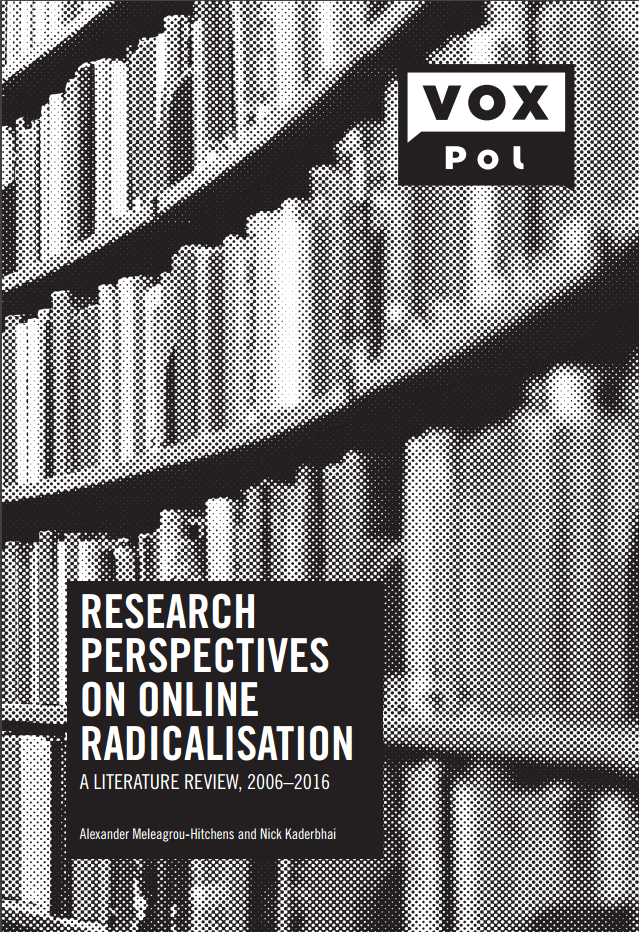Our latest report is launched today, May 03, 2017, available now in the VOX-Pol Online Library
VOX-Pol has released its latest report in the VOX-Pol publication series, titled ‘Research Perspectives on Online Radicalisation: A Literature Review, 2006—2016’. Other reports in the series have included:
Check the Web: Assessing the Ethics and Politics of Policing the Internet for Extremist Material
ABOUT THE REPORT
This literature review seeks to recalibrate our understanding of online radicalisation, how it is conceptualised within the literature and the extent to which the policy debate has advanced in response to technological and legal developments. Among the findings
are the following:
- In recent years, the overwhelming focus of this avenue of research has been on the global jihad movement. This is therefore reflected in the review, but an effort has also been made to highlight similar research on other movements;
- As with the wider debate on radicalisation, there is little agree- ment on what constitutes online radicalisation and how, if at all, it happens. The influence of online interactions and propaganda on processes of radicalisation therefore remains a highly contested subject. It is a topic that has produced a broad swathe of literature, using different methodologies from a variety of disciplines;
- Consensus is that the Internet alone is not a cause of radicalisation, but a facilitator and catalyser of an individual’s trajectory towards violent political acts;
- Use of empirical evidence to draw convincing conclusions remains scarce, and this has negatively impacted on the strength of research on this topic. Nonetheless, the exponential rise in violent extremist use of social media platforms has been the catalyst for an increase in research on the topic, and has begun to provide researchers with new forms of primary source data;
- Extremist use of the Internet has rapidly evolved and effectively adapted to a constantly shifting online media environment. Indeed, organisations – both public and private – that seek to respond to this are still playing catch-up, and have yet to mount a convincing response;
- One of the most celebrated aspects of social media – its ability to tailor content that appears on users’ feeds that appeals to their specific values and interests and plugs them into networks of like-minded individuals – is also what makes it a key asset for extremist groups. Both in the physical and virtual realm, such groups rely heavily upon isolating potential recruits from views and opinions that diverge from their prevailing ideologies and narratives;
- Extremists seek to insert people into echo chambers that amplify their message and suppress any contrary opinions. Thus, by its very nature, social media creates for its users an environment that, in some cases, is conducive to radicalisation. This is neither a criticism of social media companies nor a call for them to fundamentally change the services they provide, but rather a comment on the complexity of the challenge of online radicalisation;
- While some analysts and scholars call for measures such as censorship, others argue that softer approaches, such as creating online so-called ‘counter-narratives’ and educating Internet users, would be more effective. However, it is clear that there remains both a lack of understanding of how this would occur, or how such narratives could be effectively disseminated. While very few studies provide a convincing explanation of either, there are signs that a more sophisticated approach is beginning to take shape.
ACCESSING VOX-POL REPORTS
All VOX-Pol reports are open-access. This report is available for download here. If you would like to receive a hardcopy of the report, please email info@voxpol.eu with your request.

